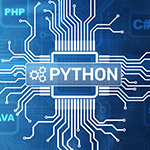
We will notify you once we have something for you
Get the best experience of Shine at your fingertips.
9am - 6pm, Mon to Sat

Group discussions are a common aspect of academic and professional settings, serving as a platform for individuals to express their thoughts, share ideas, and collaborate with others. Mastering group discussion skills is essential in today's dynamic world, where effective communication is a key component of success.
We know the importance of communication skills, however, we tend to believe that speaking fluently completes the definition of effective communication. What is often overlooked by the candidates is active listening skills. Read the blog to know how good listening skills and effective body language can help you outrank your competitors. I have participated in various GD competitions and have won prizes for the same. I will let out the hidden secrets that can help you crack this round of interviews successfully.
This article will explore the fundamentals of group discussion skills, offering practical tips to enhance your ability to contribute meaningfully to group conversations.
Group discussion is a method used by an organization to measure whether the candidate has convinced individuality traits and skills that it desires in its teammates. It involves giving a group of candidates a topic or a situation, asking them to consider it for a few minutes, and then asking them to discuss it for 15-20 minutes.
Group discussion skills are crucial for effective communication in professional and academic environments. These discussions involve a small group engaging in a structured conversation to explore and analyze a specific topic. To excel in group discussions, individuals need to focus on key skills. Some of the key skills needed in this domain have been highlighted below:
There are various types of group discussions. Learning these skills will help you in getting through all the types of GDs effectively. Check here some of the major types of group discussions as provided below:
By focusing on these key components, individuals can refine their group discussion skills, contributing to a more collaborative and productive exchange of ideas. Check out the key skills of effective group discussion as provided below:
Participating in group discussions requires a specific skill set that goes beyond the everyday conversation. These group discussion skills are integral for effective communication and collaborative problem-solving, making them essential in both professional and academic environments. Check here some of the important group discussion skills that are required for effective communication.
It is reflected in the candidate's aptitude to interrelate with other collection members in a concise situation. Emotional mellowness and stability promote high-quality interpersonal relationships. The person has to be more community-centric and less self-centered. Interpersonal skills are counted to be one of the most important GD skills.
Among the mass of brilliant candidates, there’s always a possibility of getting overshadowed and dense. It could be the case when the other candidate is not as much of well-informed in academics, but his or her one excellence of putting onward his positives and aptitude to manage the circumstances will make him/her earn a good point.
If you have content to speak, don’t wait for others to start with the group discussion. The one who gets an opportunity to speak first gets an opportunity to drive the Group discussion. There may come a time when other members are not speaking up, that time you can take a proactive step and ace your group discussion round.
Time is one of the innermost things. Its correct use can take you to heights, and its disregard can make you fall on the land. During the group discussion, make yourself definite that you will speak for at least two minutes.
You Can Also Read : Top Time Management Skills for Career Success
This indicates your aptitude to efficiently direct your thought process and examine the topic comprehensively. It reflects your aptitude to build logical arguments and make the discussion sleek, avoiding chance forays.
The communication skills evaluate the candidate's aptitude to attach to the group and are calculated from a dual viewpoint - verbal and non-verbal. While verbal communication assesses the candidates on factors such as articulation, and intonation, the non-verbal quotient defines his/her body language, signal eye contact, and expressions.
Active listening is the foundation of effective communication. The main parts of active listening comprise focusing, comprehending, reacting, and remembering what is being said. During group discussions, focus on the speaker, avoid interrupting, and ask clarifying questions to demonstrate your engagement. This is one of the most important group discussion skills.
Your body language can convey as much information as your words. Maintain eye contact, use open and positive gestures, and be aware of your posture. Non-verbal cues, such as nodding in agreement or leaning forward, signal your active participation in the discussion.
Disagreements are natural in group discussions, and mastering conflict resolution is vital. Stay calm, focus on the issue rather than personal attacks, and propose constructive solutions. The ability to navigate conflicts positively contributes to a healthy group dynamic. You need to take care of adopting this GD skill to leave a lasting impression on the recruiters.
Confidence in expressing ideas and assertiveness in making valuable contributions are vital for effective participation in group discussions. Developing these skills empowers individuals to share their perspectives with conviction and contribute meaningfully to the group's objectives.
Developing effective group discussion skills is essential for both professional growth and academic success. Here are some worthy tips to enhance your proficiency in group discussions:
Mastering group discussion skills is a continual process that involves active engagement, self-reflection, and a commitment to improvement. By honing these skills, individuals can navigate group dynamics with confidence, contribute effectively to collaborative efforts, and enhance their overall professional and academic success.
Engaging in a productive group discussion demands a set of crucial skills to ensure effective communication and collaboration. Here are the key group discussion skills required:
Improving group discussion skills involves practicing active listening, refining verbal communication, and developing critical thinking. Participating in mock discussions, seeking feedback, and taking part in diverse group settings contribute to continuous improvement. Additionally, staying informed on relevant topics and embracing a collaborative mindset enhances overall proficiency in group discussions.
Group discussions improve communication skills by enhancing active listening, articulating thoughts clearly, and engaging in meaningful exchanges. Participants learn to express ideas persuasively, adapt to various perspectives, and turn discussions diplomatically. The collaborative nature of group discussions fosters a communicative environment, refining both verbal and non-verbal communication abilities.
Recruiters assess various skills during a group discussion, including communication, teamwork, leadership, problem-solving, and adaptability skills. They observe how candidates articulate their thoughts, contribute to collaborative efforts, handle disagreements, and adapt to changing dynamics. These evaluations provide insights into a candidate's interpersonal and professional capabilities, crucial for success in a team-oriented work environment.
GD skills such as active listening, clear verbal communication, critical thinking, collaboration, and adaptability are essential for effective group discussion. These skills create a dynamic environment where diverse perspectives are valued, ideas are communicated clearly, and participants engage in constructive dialogue. The combination of these skills fosters a productive and inclusive atmosphere, leading to more successful group discussions.
These skills collectively contribute to effective group dynamics and are integral in various professional and academic scenarios. In a group discussion, key skills evaluated include:


Duration: 51 Hours|Mode: Online

Duration: 20 Hours|Mode: Online

Duration: 41 Hours|Mode: Online